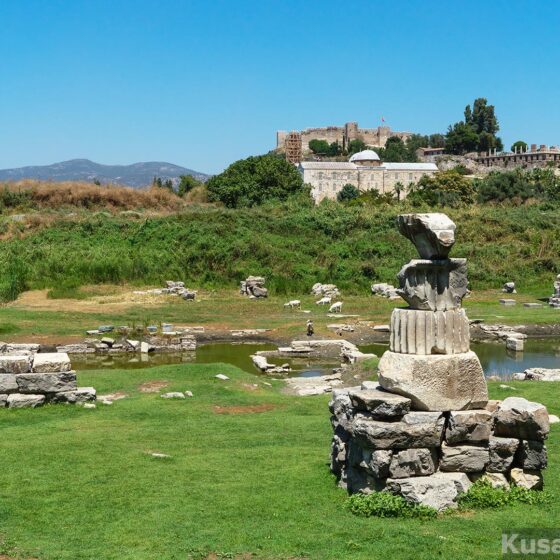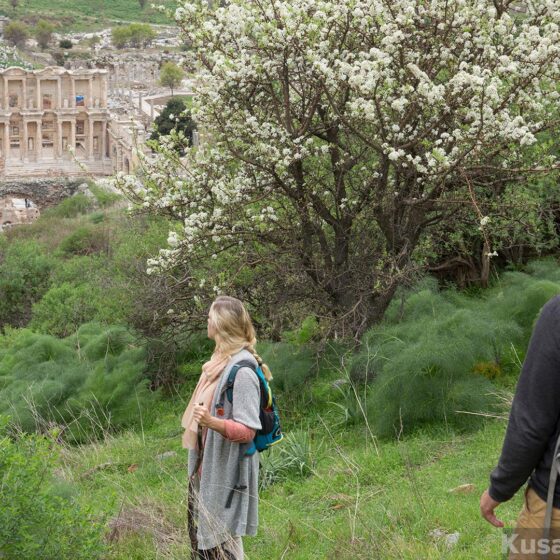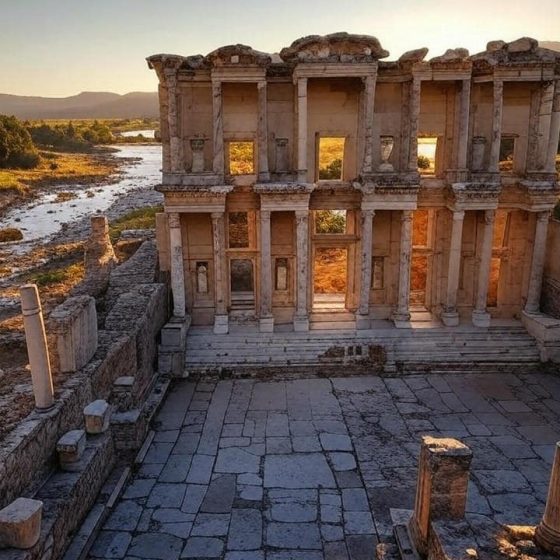Table of Contents Show
Ephesus an ancient city nestled on the coast of Ionia, stands as a testament to the ingenuity and spirit of antiquity.
If you’re planning a trip to Ephesus but wondering when the ideal time is to visit, you’ve come to the right place. Let’s navigate through the seasons in Ephesus to discover the perfect time for your visit.
Spring: A Bloom of Culture
Spring in Ephesus, spanning from March to May, is a spectacle of nature and mild weather. The temperatures are comfortable, ranging from 15°C to 25°C (59°F to 77°F), making it a favoured season for those looking to explore the ancient ruins without the summer heat.
The countryside around Ephesus bursts into a palette of colours, with wildflowers dotting the landscape. It’s also an excellent time for photography enthusiasts aiming to capture the beauty of Ephesus without the harsh summer light.
See also: Discover Ephesus: Book Your Ephesus Tour Today
Historical Fact: Ephesus was once home to one of the Seven Wonders of the Ancient World, the Temple of Artemis. This magnificent structure was dedicated to the goddess Artemis, and its grandeur drew pilgrims from all corners of the ancient world.
Summer – The Peak Season
June through August in Ephesus means longer days and warmer temperatures, climbing up to 30°C (86°F) or higher. This season is the peak tourist period, so expect the ancient streets to be bustling with visitors. While the heat can be intense, especially around midday, early morning and late afternoon visits offer cooler, more comfortable exploring conditions.
Summer also brings a range of festivals and events in the nearby city of Izmir, offering a glimpse into the local culture and festivities.
See also: Top Adrenaline & Extreme Tours in Kusadasi
Historical Fact: The Library of Celsus, an iconic structure of Ephesus, once held thousands of scrolls, making it one of the largest libraries of the ancient world. It was a symbol of knowledge, scholarship, and the city's intellectual prowess.
Autumn: The Golden Hour
As the summer heat begins to wane, autumn descends upon Ephesus, offering a serene and contemplative ambience. Great Theatre, an impressive amphitheatre that could accommodate 25,000 spectators, stands as a silent witness to the city’s dramatic past. Autumn presents an opportunity to explore the site at a more leisurely pace, allowing you to appreciate the architectural marvels and the surrounding natural beauty.
Historical Fact: Ephesus was a prominent centre for early Christianity, and it is believed that the Gospel of John was written here. The city was also visited by St. Paul, who played a crucial role in spreading Christianity in the region.
Winter – A Quiet Reflection
Winter months, December through February, are the quietest in Ephesus. The weather is cooler, with temperatures ranging from 5°C to 15°C (41°F to 59°F), and occasional rainfall.
However, this is the season for those who prefer a more solitary exploration of the ancient city. The reduced number of visitors means you can wander through the historic sites and take in the details at your own pace, often in solitude. It’s a time for reflection, absorbing the immense history without the distraction of crowds.
Historical Fact: Ephesus was a bustling commercial hub, and its strategic location facilitated trade between Asia and Europe. The ancient city's prosperity was bolstered by its harbour, which connected it to the Aegean Sea.
Ephesus, a timeless wonder, beckons travellers throughout the year with its rich historical tapestry. Each season offers a distinct experience, from blooming landscapes in spring to the mystical serenity of winter.
Ready to explore the captivating wonders of Ephesus and create cherished memories that will last a lifetime? Look no further! We specialise in crafting private Ephesus tours and travel packages that cater to your unique preferences and interests.
Contact us today using the form below, and let’s embrace an unforgettable journey together!
Last updated on March 2, 2024



